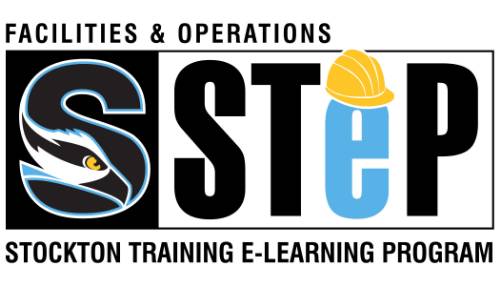RMEHS Training
 Regulations
Regulations
| Regulation | Focus Area |
| NJ PEOSH Hazard Communication Standard & NJ Right-to-Know N.J.A.C. 12:100-7 | Use and storage of hazardous chemicals or materials containing hazardous materials |
| OSHA Laboratory Standard 29 CFR 1910.1450 | Handling hazardous chemicals in a laboratory setting |
| Resource Conservation & Recovery Act Hazardous Waste 40 CFR 262.34 & 265.16 |
The proper handling of hazardous waste materials and associated emergency procedures |
|
RCRA Hazardous Waste Generators & DOT Hazardous Materials Transportation 40 CFR 262.34 & 265.16 |
The preparation of hazardous waste for off-site shipment and preparation/documentation of the hazardous waste manifest |
|
OSHA HazWoper 29 CFR 1910.120 |
Clean-up of hazardous waste spills and associated emergency procedures |
|
-Dept. of Trans. (DOT) 49 CFR Subpart H -Inter. Air Trans. Assoc. (IATA) DGR 44th Edition (1.5) |
Preparation and shipment of hazardous and regulated medical waste |
|
Blood Borne Pathogens Training 29 CFR 1910.1030 |
Occupational exposure to blood or other potentially infectious materials |
|
OSHA Forklift Training 29 CFR 1910.178(1) |
The operation of almost all specialized gasoline, diesel, electric and liquefied petroleum gas industrial trucks, including forklifts, platform lift trucks and walk behind hand trucks |
|
OSHA Height regulations (29 CFR 1926.500-503) |
Requires you to take specific precautions to protect employees who work at heights. |
|
OSHA Lockout/Tag out 29 CFR 1910.147 |
The control of hazardous energy sources and the operation of associated equipment. |
|
OSHA Confined Space Awareness 29 CFR 1910.146 |
Protection from the hazards of entry into permit-required confined spaces. |
|
Air Quality Emissions Rule NJAC 7:27 |
Governs the emitting of and such activities as result in the introducing of contaminants into the ambient atmosphere. |
|
Chemical Pesticide Applicators NJAC 7:30-6.2 |
Covers the certification and licensing requirements for commercial pesticide applicators. |
|
The Uniform Construction Code NJAC 5:23 |
Contains the UCC Act and all rules issued under the Act relating to the administration and enforcement of construction regulations. The UCC is comprised of four basic technical sub codes for construction: building, electrical, fire protection, and plumbing. |
Mandated Training
| Program | Required Employees | Frequency | Resources |
| All employees that use or store hazardous chemicals or products containing hazardous chemicals. Employees that have a potential exposure to hazardous chemicals. | Upon initial employment, upon new assignments with biannual refresher |
NJ PEOSH Outside Sources NAMS & RMEHS |
|
|
OSHA Laboratory Standard 29 CFR 1910.1945 |
Faculty and staff working in laboratories with hazardous chemicals | Upon initial employment, upon new assignments, annual refresher | NAMS |
| All employees must be familiar with proper waste handling and emergency procedures relevant to their job responsibilities | Upon initial assignment with annual review |
Outside Sources NAMS & RMEHS |
|
|
RCRA Hazardous Waste Generators & DOT Hazardous Materials Transportation 40 CFR 262.34 & 265.16 |
Employee(s) preparing waste for shipment; Employee signing Hazardous Waste Manifest for shipping waste off-site. | Within 90 days of employment and annually. | Outside Sources |
|
OSHA HazWopper 29 CFR 1910.120 |
Employees responding to hazardous materials emergency response | Upon initial assignment, annual refresher | Outside Sources |
|
Dept. of Trans. ./Inter. Air Trans. Assoc. 49 CFR Subpart H IATA DGR 44th Edition (1.5) |
Key employees preparing and shipping hazardous and regulated medical waste |
Upon initial assignment DOT/ every 2 years IATA/every 3 years |
Outside Sources |
|
DOT/IATA Awareness Training 49 CFR Subpart H IATA DGR 44th Edition (1.5) |
All faculty and staff involved with shipping and receiving of hazardous materials | Within 90 days of employment or reassignment and every two years. | Outside Sources |
|
|
All faculty and staff with the potential of exposure to Bloodborne Pathogens. | At initial employment or reassignment with annual refresher |
NJ PEOSH Outside Sources
|
|
OSHA Forklift Training 29 CFR 1910.178(1) |
All designated forklift operators are trained and certified prior to operating any powered industrial truck in the workplace | Initial training & certification. Recertification every three years. |
NJ PEOSH Outside Sources |
|
OSHA Lockout/Tagout 29 CFR 1910.147 |
Three groups of employees depending on their job assignments. Training requirements vary for each level. | At initial assignment. Retraining is required whenever there are changes to energy control methods or equipment. | Outside Sources |
|
OSHA Confined Space Awareness 29 CFR 1910.146 |
Any employee who is required to work in a defined confined space. | At initial assignment. Retraining is required whenever there are changes in confined space locations, permit practices or equipment. | Outside Sources |
|
CPR |
Selected employees from all college departments. | Annually | Outside Sources |
| NJDEP Universal Waste | All employees that use or store Universal Waste | Upon initial employment, and with an annual refresher. | Outside Sources |
Other Training Currently Offered
| Program | Targeted Employees | Frequency | Resources |
| Proper Lifting Techniques | All employees whose jobs require heavy lifting. | Annually | Outside Sources |
| Outdoor Work Health Hazards | All employees who work primarily in an out door environment | Annually | NJ PEOSH |
|
Mold Awareness Training |
Complex Directors and Residential Assistants | At initial employement | PP Presentation |
Recommended Training
| Program | Targeted Employees | Frequency | Resources |
| The Supervisor & Safety | 1st & 2nd Line Supervisors | Annually | NJ PEOSH |
| Defensive Driving | Any employee who is required to operate a college vehicle as part of his/her job. | Annually | Outside Sources |


